What Happens When You're Charged With a Crime?
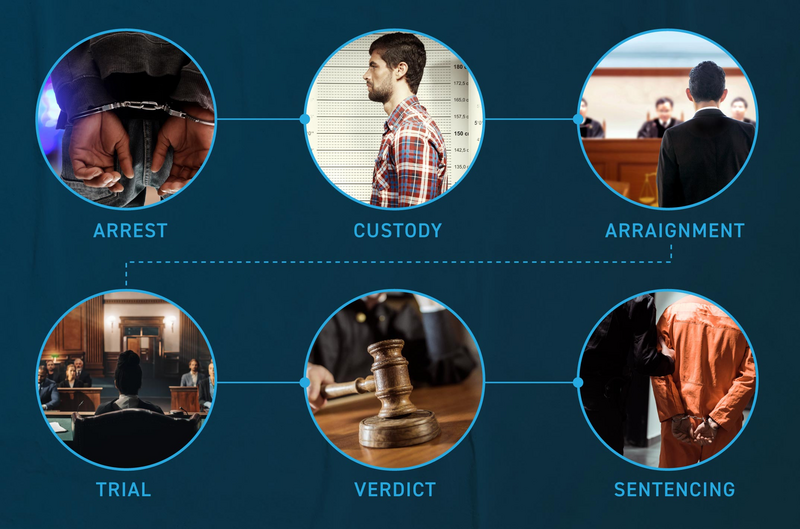
Reviewed by Carina Jenkins, J.D.
Television shows and movies often depict courtroom dramas, but the real-life legal process is more complex. You may be worried and confused if you or a loved one are charged with a crime.
Learning what happens when you're charged with a crime can make the process less scary and help you fight for a better outcome in criminal court.
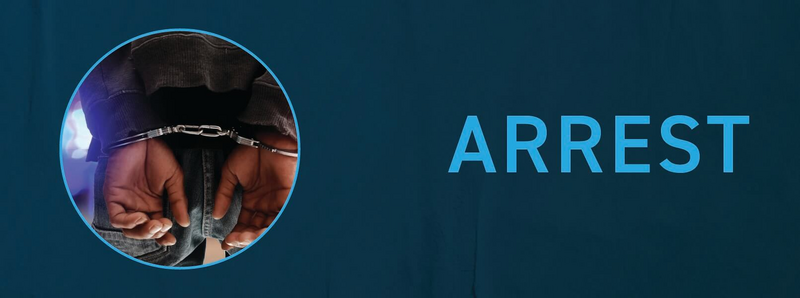
Arrest and Booking
Police will make an arrest if they have probable cause to believe that someone has committed a crime. If police witness a crime or think there's an urgent safety issue, they may immediately arrest the suspect.
In some serious or complex cases, police will get an arrest warrant signed by a judge. Arrest warrants are likely if there has been a lengthy investigation before an arrest, such as with murder cases or white-collar crimes. An arrest may also take place after grand jury proceedings.
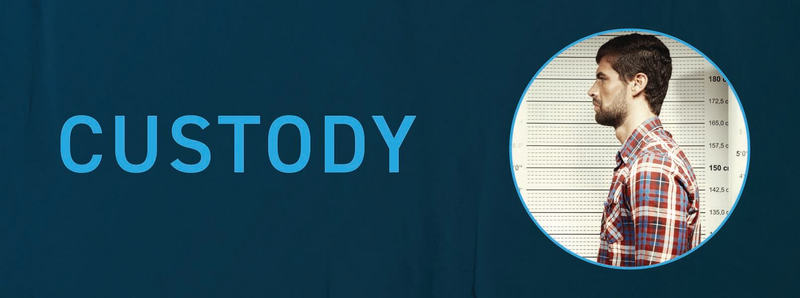
Booking is the process that happens once a suspect arrives at a jail. The booking process frequently involves:
- Fingerprinting
- Taking mugshots
- Entering information about the suspect into a jail computer
- Searching for outstanding warrants
- Taking the suspect's personal belongings for safekeeping
- Issuing clothing to be worn in jail
What About Cases Where There's No Arrest?
Sometimes, a person isn't arrested; instead, police issue a summons to appear. A summons initiates the criminal court process much like an arrest, and police may use a summons in cases where the crime is minor or the suspect isn't likely to flee. Failure to appear in court as required by a summons will likely cause a judge to issue an arrest warrant.
After police make an arrest, the criminal court process begins.
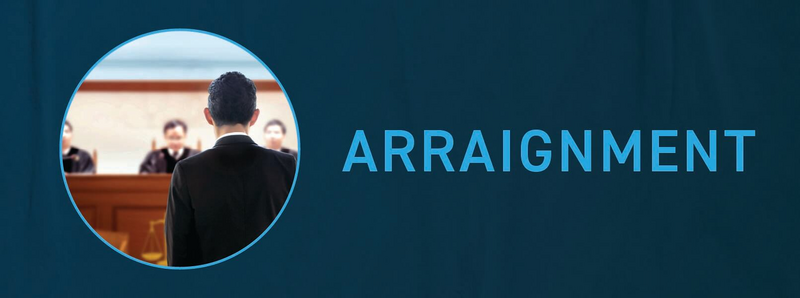
Arraignment
The arraignment hearing is usually a person's first appearance before a judge after the arrest. The judge will advise the defendant of critical rights and information like:
- The criminal charges
- The right to an attorney
- Bail conditions
The defendant may choose to enter a not-guilty plea, and the court may appoint a public defender if appropriate. The court may also allow the defendant time to hire a private criminal defense lawyer.
Bail Hearing
During a bail hearing, a judge or magistrate can set bail. Sometimes, bail hearings are combined with arraignments.
Bail is an amount of money you deposit with the court as a promise that you'll continue appearing in court until your case is over. For example, if bail is set at $10,000, you'll have to deposit that amount to get out of jail. The court will generally return your money once the case is over, as long as you attend all required court appearances. If you miss court, you could forfeit the bail money and have to go back to jail. A judge can also adjust bail that was automatically set by state law.
Intermediate Court Hearings
Criminal cases ultimately end in a trial or plea deal, but other hearings may occur first. These include:
- Preliminary hearings
- Motions hearings
- Status conferences
The names and purposes of these hearings vary by jurisdiction, but they all serve the purpose of resolving potential legal issues and letting the judge know how the case should move forward.
More Related Articles:
- When Do You Need a Lawyer? Determine If You Need to Hire an Attorney
- What Is a Class-Action Lawsuit?
- What Is a Misdemeanor?
- What to Do After a Car Accident
- What Is Power of Attorney?
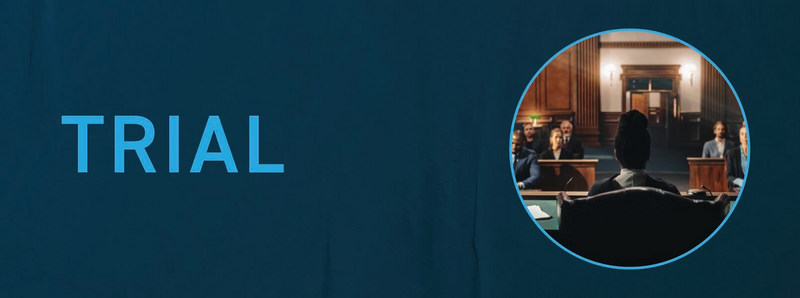
Case Disposition: Trial or Plea Agreement
The ultimate purpose of a criminal case is to determine whether a person is guilty of the charged crime. The case may be resolved through a plea agreement or by trial.
Plea Agreement
Most criminal cases end in a plea agreement. The defendant enters a plea of guilty. The prosecutor may have agreed to allow a plea to a less serious crime or may have agreed to specific sentencing recommendations. Plea agreements save resources and reduce the risk of a more severe sentence.
Plea agreements are usually done on paper between the defendant and the prosecutor and then presented to the judge. The judge must approve the deal and will evaluate whether the defendant is voluntarily entering the plea and whether the agreement serves justice and the public interest.
The Criminal Trial
If an agreement can't be reached, the case will go to trial. In most cases, the prosecutor will present evidence to a jury. In criminal cases, the prosecutor is responsible for proving the case beyond a reasonable doubt, the highest standard of proof in the U.S. legal system. The defense may wish to present evidence or question witnesses, but they aren't required to do so.
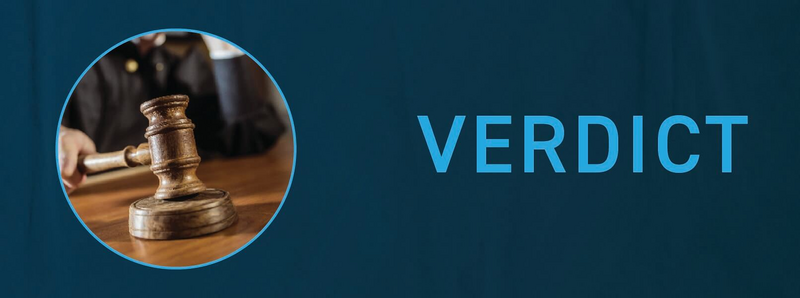
The Verdict in Criminal Cases
A verdict is the final factual determination made by a judge or jury. The jury doesn't have to determine whether the defendant is guilty or innocent, and defendants are never required to prove their innocence. Instead, if the prosecution fails to prove guilt beyond a reasonable doubt, the judge or jury must find the defendant "not guilty."
However, if the case has been proved, the jury will find the defendant "guilty." The case will then proceed to the final phase, known as sentencing.
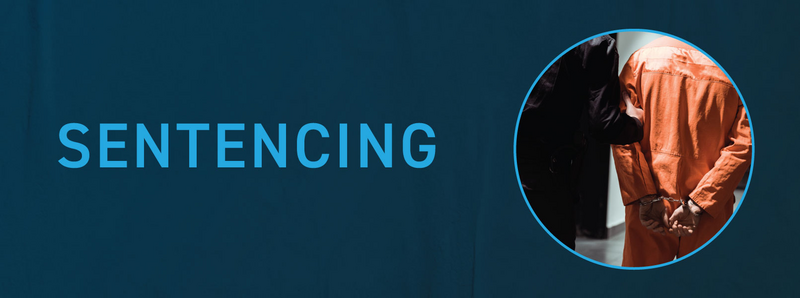
Sentencing for Criminal Charges
The court will conduct a sentencing hearing if a defendant has been found guilty at trial or entered a guilty plea. The judge may consider statements from the victim, defendant or other involved parties. Attorneys for the prosecution and defense can make arguments about what the sentence should be. The judge will then sentence the defendant. A criminal sentence may include:
- Fines
- Probation
- Community service
- Counseling or drug rehabilitation
- Jail or prison time
Sentencing may happen immediately after a plea agreement or verdict, or the court may schedule a separate sentencing hearing.
Are Criminal Court Procedures the Same Everywhere?
What happens when you're charged with a crime is generally the same throughout much of the United States, but specific procedures vary by jurisdiction and type of case. Federal court procedures can differ from state courts, and the process for felony criminal charges may look different from those for a misdemeanor. Criminal charges can have significant lifelong consequences, so consulting a criminal defense attorney in your area is always wise.
Elocal Editorial Content is for educational and entertainment purposes only. The information provided on this site is not legal advice, and no attorney-client or confidential relationship is formed by use of the Editorial Content. We are not a law firm or a substitute for an attorney or law firm. We cannot provide advice, explanation, opinion, or recommendation about possible legal rights, remedies, defenses, options or strategies. The opinions, beliefs and viewpoints expressed by the eLocal Editorial Team and other third-party content providers do not necessarily reflect the opinions, beliefs and viewpoints of eLocal or its affiliate companies. Use of the Blog is subject to the
Website Terms and Conditions.The eLocal Editorial Team operates independently of eLocal USA's marketing and sales decisions.



